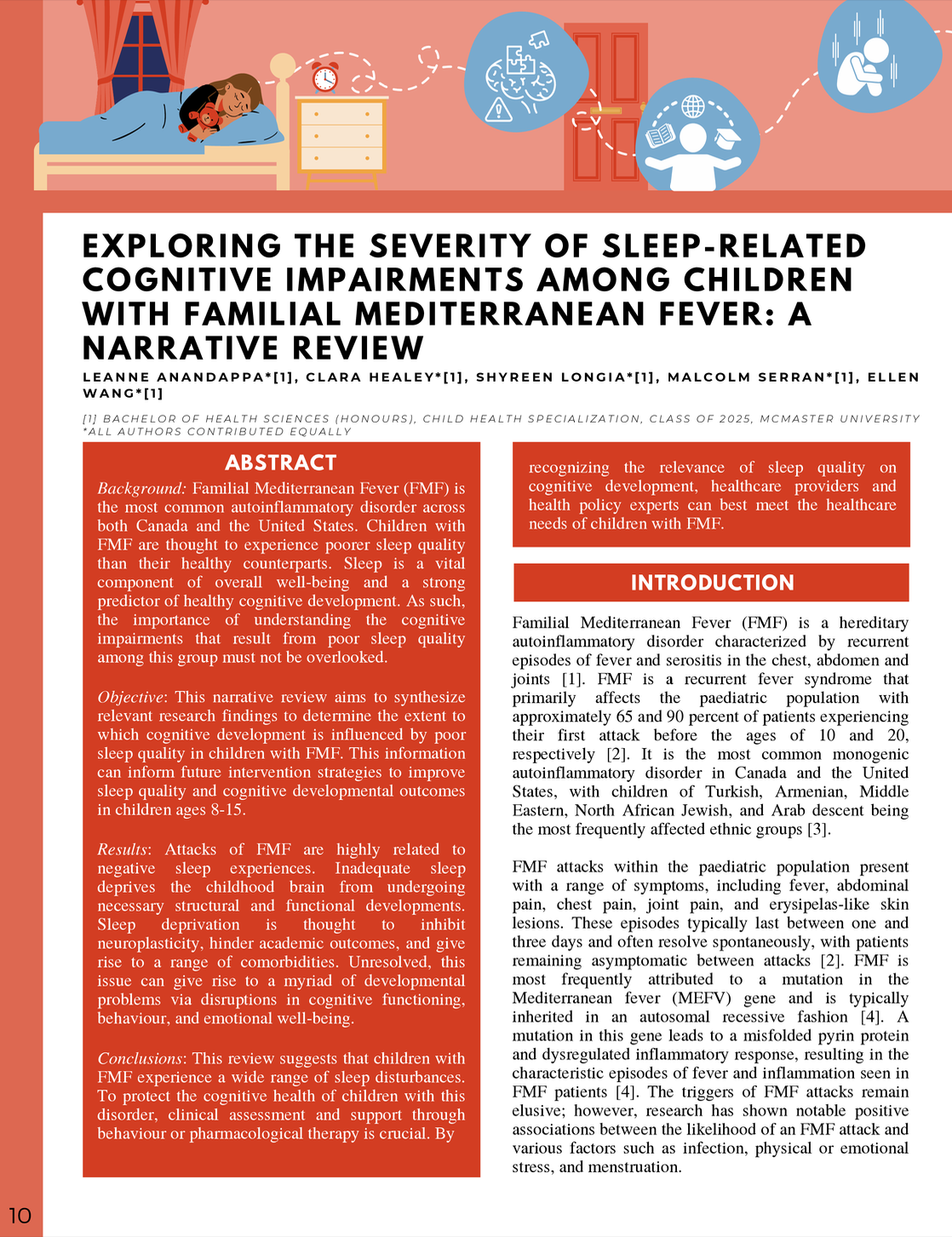Exploring The Severity of Sleep-Related Cognitive Impairments Among Children with Familial Mediterranean Fever: A Narrative Review
DOI:
https://doi.org/10.15173/child.v3i1.3899Abstract
Background: Familial Mediterranean Fever (FMF) is the most common autoinflammatory disorder across both Canada and the United States. Children with FMF are thought to experience poorer sleep quality than their healthy counterparts. Sleep is a vital component of overall well-being and a strong predictor of healthy cognitive development. As such, the importance of understanding the cognitive impairments that result from poor sleep quality among this group must not be overlooked.
Objective: This narrative review aims to synthesize relevant research findings to determine the extent to which cognitive development is influenced by poor sleep quality in children with FMF. This information can inform future intervention strategies to improve sleep quality and cognitive developmental outcomes in children ages 8-15.
Results: Attacks of FMF are highly related to negative sleep experiences. Inadequate sleep deprives the childhood brain from undergoing necessary structural and functional developments. Sleep deprivation is thought to inhibit neuroplasticity, hinder academic outcomes, and give rise to a range of comorbidities. Unresolved, this issue can give rise to a myriad of developmental problems via disruptions in cognitive functioning, behaviour, and emotional well-being.
Conclusions: This review suggests that children with FMF experience a wide range of sleep disturbances. To protect the cognitive health of children with this disorder, clinical assessment and support through behaviour or pharmacological therapy is crucial. By

